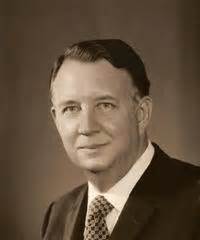A Quote by Yukio Mishima
The mind, by its very nature, persistently tries to live forever, resisting age and attempting to give itself a form... . When a person passes his prime and his life begins to lose true vigor and charm, his mind starts functioning as if it were another form of life; it imitates what life does, eventually doing what life cannot do.
Related Quotes
Many expressions that are in common usage, and sometimes the structure of language itself, reveal the fact that people don't know who they are. You say: "He lost his life" or "my life," as if life were something that you can possess or lose. The truth is: you don't have a life, you are life. The One Life, the one consciousness that pervades the entire universe and takes temporary form to experience itself as a stone or blade of grass, as an animal, a person, a star or a galaxy. Can you sense deep within that you already know that? Can you sense that you already are That?
When a man's life is over, it remains true that he was one sort of man and not another. A man who understands himself under the form of eternity knows the quality that eternally belongs to him, and knows that he cannot wholly die, even if he would, for when the movement of his life is over, the truth of his life remains.
Remember, intelligence is not part of the mind. Intellect is, but intelligence is not; hence, the intellectual is full of mind but in life he behaves very unintelligently. He has a certain expertise, he is trained intellectually to, do a certain thing, his mind is functioning like a computer. But life is not one-dimensional, you cannot exhaust it in one expertise; it is multi-dimensional.
A library represents the mind of its collector, his fancies and foibles, his strength and weakness, his prejudices and preferences. Particularly is this the case if, to the character of a collector, he adds - or tries to add - the qualities of a student who wishes to know the books and the lives of the men who wrote them. The friendships of his life, the phases of his growth, the vagaries of his mind, all are represented.
Independence is the recognition of the fact that yours is the responsibility of judgment and nothing can help you escape it-that no substitute can do your thinking, as no pinch-hitter can live your life-that the vilest form of self-abasement and self-destruction is the subordination of your mind to the mind of another, the acceptance of an authority over your brain, the acceptance of his assertions as facts, his say-so as truth, his edicts as middle-man between your consciousness and your existence.
The great decisions of human life have as a rule far more to do with the instincts and other mysterious unconscious factors than with conscious will and well-meaning reasonableness. The shoe that fits one person pinches another; there is no recipe for living that suits all cases. Each of us carries his own life-form- an indeterminable form which cannot be superseded by any other.
Speed is the form of ecstasy the technical revolution has bestowed on man. As opposed to a motorcyclist, the runner is always present in his body, forever required to think about his blisters, his exhaustion; when he runs he feels his weight, his age, more conscious than ever of himself and of his time of life. This all changes when man delegates the faculty of speed to a machine: from then on, his own body is outside the process, and he gives over to a speed that is noncorporeal, nonmaterial, pure speed, speed itself, ecstasy speed.


































